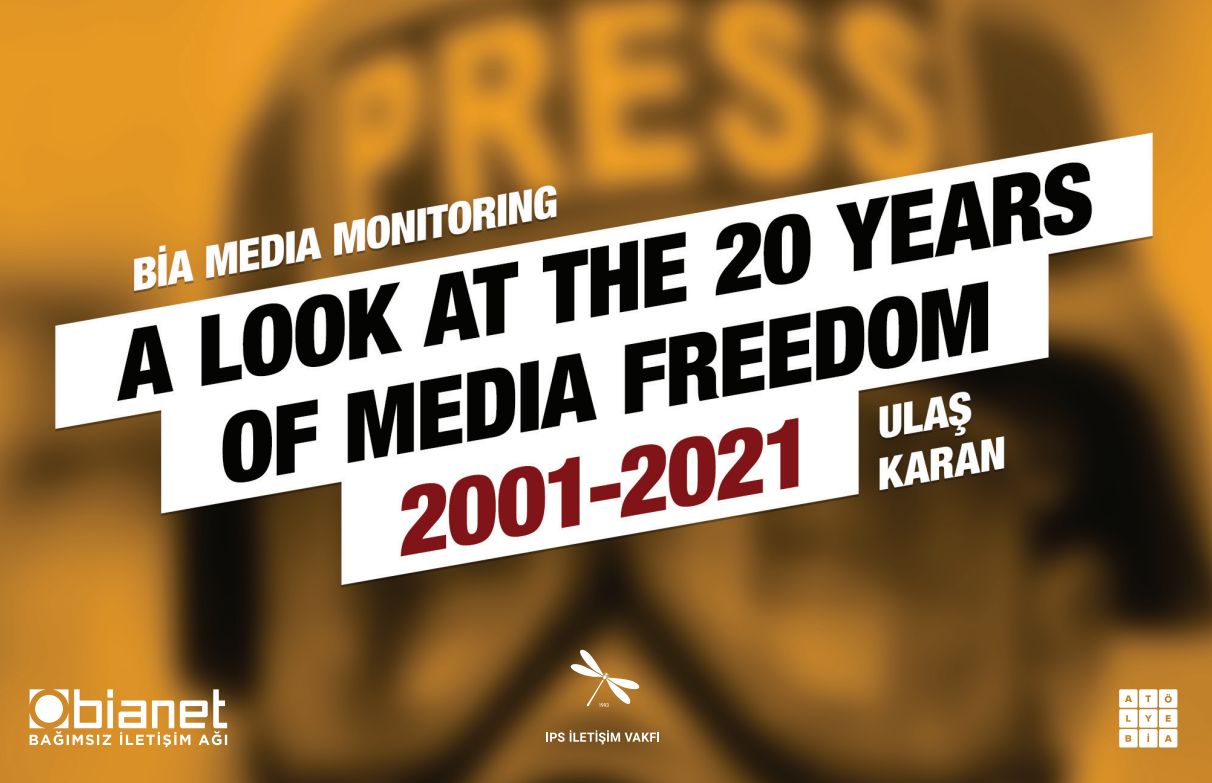Click to read the article in Turkish / Kurdish
Assoc. Prof. Ulaş Karan, a trainer and researcher at the İstanbul Bilgi University Human Rights Law Research Center, wrote a report about the BİA Media Monitoring Reports published by bianet/IPS Communication Foundation, titled "A Look At the 20 Years of Media Freedom," with the support of Etkiniz.
Focusing on interventions against media outlets and journalists, BİA Media Monitoring Reports (MMR) have been published by Erdol Önderoğlu on a quarterly basis since 2001.
In this evaluation report, Karan looks at the last 20 years of freedom of expression in Türkiye in terms of journalists in the light of the BİA Media Monitoring Reports and makes a summary evaluation, making note of various cases in the past 20 years.
The report is published in Türkish and English, and will also be translated into Kurdish.
CLICK - BİA Media Monitoring Reports
Reasons for limiting freedom of expression
The study, which starts by mentioning the scope of the BİA Media Monitoring Reports in general, continues with the prominent actors in the restriction of free expression. The section titled "Patterns Appearing in Limitation of Freedom of Expression" mentions the reasons for limitations highlighted in the MMR.
In the reports, the most common reason for limitation on journalists is "combating terrorism," along with "defamation," "provoking the people into hatred and hostility," and "degrading the Turkish Nation, State or state organs."
The reports indicate that insulting the president as per article 299 of the Turkish Penal Code is one of the most mentioned legal regulations in the last 8 years.
While the Radio and Television Supreme Council (RTÜK) is the subject of "Interventions in the form of Broadcasting Bans," blocking access is mentioned as another way of intervention. "Interventions Concerning Publishing in Languages Other Than Turkish" are also listed.
CLICK - The 20-year story of BİA Media Monitoring Reports
Still far from international law standards
Karan says media outlets and journalists are the groups that face the most frequent and severe interventions, and Türkiye is still far from international law standards in terms of freedom of expression.
Ending with the title "Aftermath," the report also includes a comparison between the periods before and after the BİA MMR started. It touches on the conditions before the Media Monitoring Reports began to be published (such as Türkiye becoming a party to the International Covenant on Civil and Political Rights in 2003) and the important events (such as the Gezi Park protests and the 2016 coup attempt) and their impact (pressure) on media outlets and journalists.
This evaluation report written about the BİA Media Monitoring Reports ends with the note, "The violation of the legal regulations in the Constitution, in the international contracts involving Turkey and the legislation continues from time to time, and it quantitatively increases. Turkey does not fulfill its legal obligations emerging from this legal framework and systematically violates all aspects of freedom of expression protected by the Constitution."
From the report
"Also, examining the last 20 years in five-year intervals, it is observed that the first five years involved mostly cases of provoking the public to hatred and hostility (TCK Article 216). In the second five-year period, which is after 2005, the most common cases concerned degrading the Turkish nation, the State, state organs and institutions (TCK Article 301).
"As observed in the third five-year period, the interventions against journalists which were much more at the individual level before 2010, involved collective journalist lawsuits where a number of journalists are simultaneously tried on the grounds of the same case. In the last five years, it seems that insulting the President is observed as the most common crime.
"Not being able to get advertisement from the Press Advertisement Institution, ad bans, cancellation of press cards, not giving new ones, and severe financial sanctions are also common practices against radio and television channels in the last five years."
*This report was produced with the European Union's financial support as part of the Etkiniz EU program. Only the IPS Communication Foundation/bianet is responsible for the content of this publication, and it does not reflect the views of the European Union.
(SA/SO/NÖ/VK)





